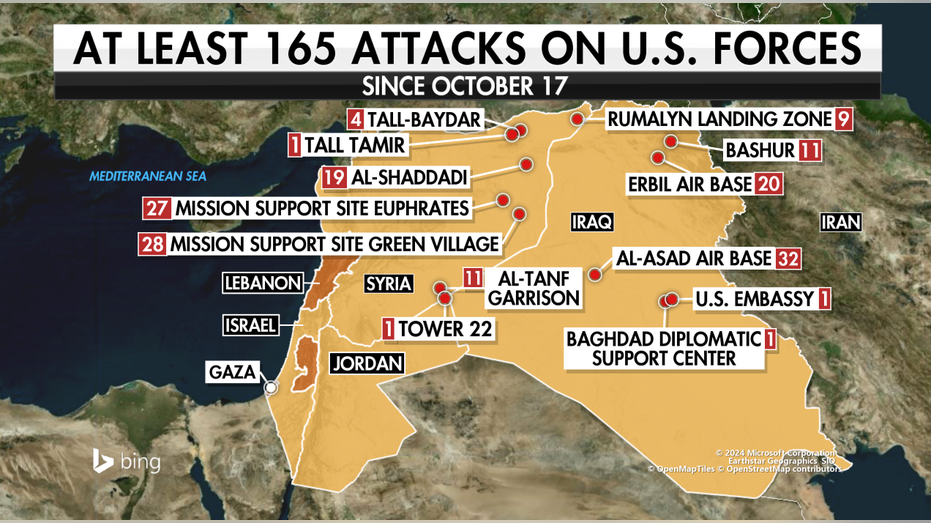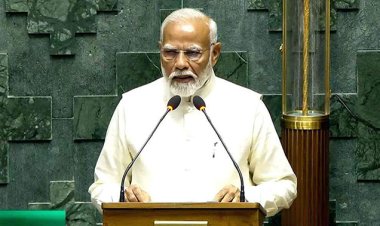Pentagon says Israel-Hamas war isn't spreading despite US soldiers killed in Jordan, Red Sea attacks
The Pentagon says the Israel-Hamas war is not spreading in the region despite an attack by Iran-backed militias that killed three US soldiers at a military base in Jordan.

The Pentagon does not see the Israel-Hamas war as having spread to the wider Middle East despite a new round of attacks by Iran-backed militias that killed three U.S. soldiers and injured dozens more at a military base in Jordan over the weekend.
Since Oct. 17, a loose coalition of Iran-backed militia groups have perpetrated more than 160 attacks on U.S. targets in Iraq and Syria. The groups say the attacks are in retaliation for U.S. support of Israel in its ongoing offensive against Hamas militants in Gaza.
The latest attack in Jordan marked a major escalation of violence, as it was the first time U.S. soldiers have been killed, as well as an expansion of reach.
On Monday, Deputy Pentagon Press Secretary Sabrina Singh said it was not the Pentagon’s view that the Israel-Hamas war is spreading beyond Gaza.
"I wouldn’t say that the conflict is spreading in that we’ve seen … over 100 attacks on U.S. forces in Iraq and Syria. And of course, now in Jordan," Singh said. "We don’t want to see a widening of this conflict. We don’t see this conflict widening as it still remains contained to Gaza."
She conceded that the attack was "escalatory" in that it killed three American service members.
"We don’t want to see a … widening of a regional war. But we will respond at a time and place of our choosing," Singh said.
During a stop in South Carolina on Sunday, President Biden said the U.S. "shall respond."
"We had a tough day last night in the Middle East," Biden said. "We lost three brave souls in an attack on one of our bases."
In a written statement, the president said the U.S. "will hold all those responsible to account at a time and in a manner (of) our choosing."
Earlier Monday, Secretary of State Antony Blinken said the U.S. has "been very clear in warning that anyone looking to take advantage of the conflict in the Middle East and try to expand it: don't do it."
"We’ve taken steps to defend ourselves and to defend our partners as well as prevent escalation," Blinken said. "The president’s been crystal clear: we will respond decisively to any aggression. And we will hold responsible the people who attacked our troops. We will do so at a time and a place of our choosing."
Per the DOD, there have been 165 attacks in Iraq, Syria, and now Jordan since Oct. 17. Of these, 66 were in Iraq, 98 were in Syria, and one was in Jordan.
Fallout from the Israel-Hamas war has spread to the Red Sea where Houthi militants based in Yemen have for months been firing on commercial vessels, forcing them to reroute at exorbitant costs. The militants say their actions are in defense of Palestinians under siege in Gaza.
The ongoing attacks in the Red Sea prompted the U.S. and its allies to strike Houthi targets in Yemen.
Singh said there was nothing "different or new" about the attack in Jordan compared to previous attacks in Iraq and Syria.
"We can't discount the fact that other attacks, whether it be Iraq or Syria, were not intended to kill our service members," she said.
Singh reiterated that the U.S. was not seeking war with Iran, nor did it wish to widen the conflict.
"We have said and will continue to call out the fact that Iran does fund and equip these groups and provide them the capabilities that they use to attack our service members, whether it be Iraq, Syria, or Jordan," she said. "So, we're not going to hesitate in calling that out."
The Pentagon said more than 40 people were injured in the weekend attacks on a small desert installation known as Tower 22 in Jordan. At least eight were medically evacuated and the most seriously hurt service member is in critical but stable condition.






















